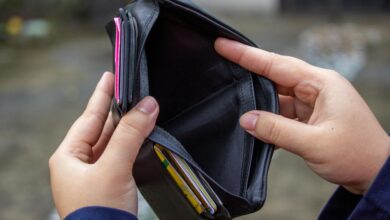12 Biggest Money Mistakes To Avoid In Your 20s
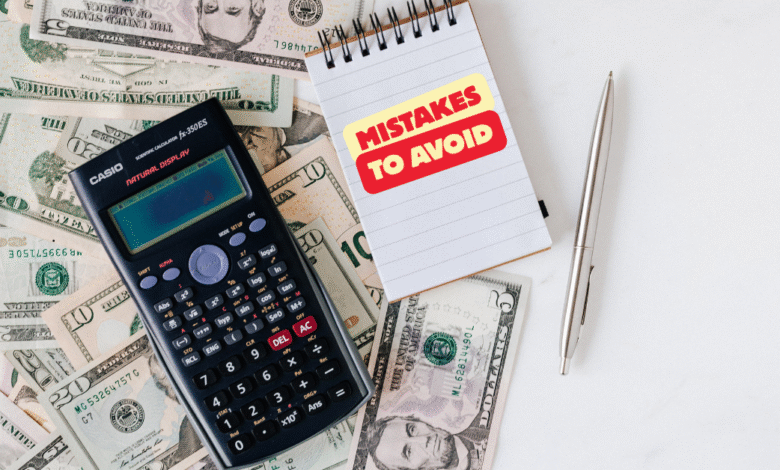
Look, your 20s are wild. You’re finally making your own money, nobody’s telling you what to do, and suddenly that new iPhone or weekend trip feels totally justified.
But here’s the thing: the financial decisions you make right now will either set you up for an awesome future or leave you scrambling to catch up in your 30s and 40s.
I’m not here to lecture you like some boring finance professor. Instead, think of this as your friend giving you the real talk about money mistakes to avoid in your 20s. Because trust me, I’ve seen (and made) plenty of these mistakes myself, and I wish someone had pulled me aside earlier.
The good news? You’ve got time on your side. The bad news? That time disappears faster than you think. So let’s jump into the biggest financial traps young people fall into and how you can dodge them like a pro.
What Exactly Counts As A Money Mistake?
Before we get into the specifics, let’s clear something up. A money mistake isn’t just about buying that extra latte (though we’ll talk about that too). It’s any financial decision that pushes you further from your goals or creates unnecessary stress down the road.
Think of it this way: if a choice today makes your future self want to travel back in time and slap you, that’s probably a money mistake. These can range from small daily habits like impulse purchases to major decisions like ignoring debt or skipping insurance.
The tricky part? Some mistakes feel totally normal in the moment. Everyone’s doing it, right? Wrong. Just because your friends are maxing out credit cards or living paycheck to paycheck doesn’t mean you should join the club.
12 Biggest Money Mistakes To Avoid In Your 20s
Alright, let’s get into the meat of this. Here are the financial landmines you need to step around if you want to build real wealth.
1. Relying On Parents
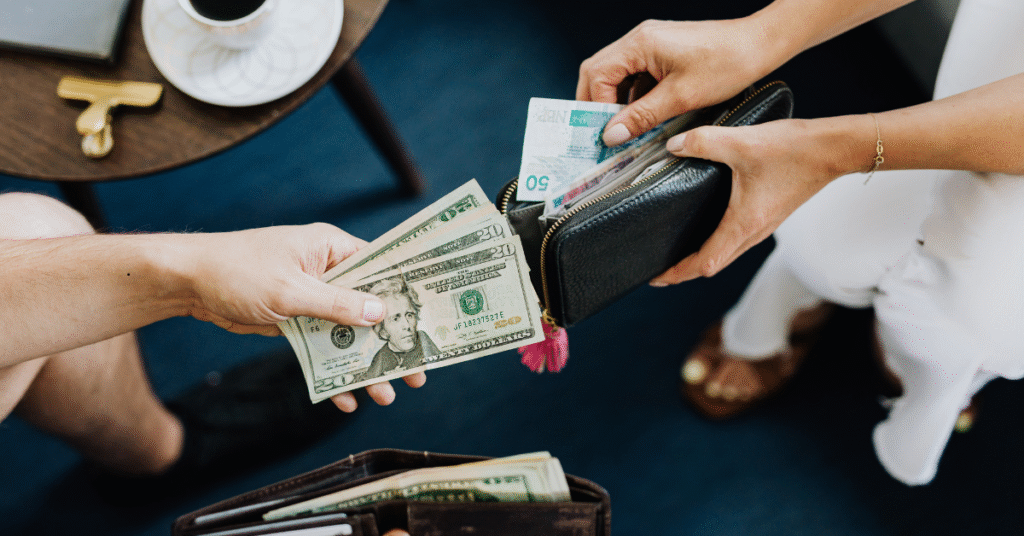
I get it. If your parents are willing to help out, why not take advantage? Free rent, phone bills covered, maybe even grocery money. Sounds pretty sweet, doesn’t it?
But here’s the reality check: staying financially dependent on your parents is one of those money mistakes to avoid in your 20s that’ll bite you later. You’re not learning how to manage money, budget, or handle real-world financial pressure. Plus, you’re missing out on that incredible feeling of true independence.
And let’s be honest, money has a weird way of complicating relationships. When your parents are constantly bailing you out, it can create resentment on both sides. They might start feeling like you’re taking advantage, and you might feel guilty or controlled.
What to do instead: Start taking on your own expenses gradually. Maybe start with your phone bill, then add car insurance, then rent. Build up that financial muscle slowly but surely.
2. Ignoring Student Loans

Student loans are like that pile of laundry you keep ignoring. It doesn’t go away just because you’re not looking at it. In fact, it gets worse.
Too many people in their 20s treat student loans like some distant problem they’ll deal with “eventually.” Meanwhile, interest is piling up, payments are being missed, and your credit score is taking a beating. This is seriously one of the most damaging money mistakes to avoid in your 20s.
Here’s what people don’t tell you: a bad credit score from missed student loan payments can haunt you for years. We’re talking higher interest rates on car loans, difficulty renting apartments, and even potential job rejections (yes, some employers check credit).
Your game plan: Know exactly what you owe, when payments start, and what your grace period looks like. Set up automatic payments for at least the minimum amount. If you’re struggling, look into income-driven repayment plans or refinancing options. The key is to face it head-on instead of pretending it doesn’t exist.
3. Forgoing Insurance
“I’m young and healthy, why do I need insurance?” Famous last words, my friend.
Skipping insurance because you feel invincible is a classic money mistake in your 20s. Sure, you might be in great shape now, but life has a funny way of throwing curveballs when you least expect them. One car accident, one unexpected illness, or one apartment fire can wipe out years of savings.
Think of insurance as your financial safety net. You pay a little bit each month into a pool, and if something goes wrong, that pool covers your massive expenses. Without it, you’re one emergency away from serious debt.
Types of insurance you actually need:
- Health insurance (non-negotiable, seriously)
- Renter’s or homeowner’s insurance
- Auto insurance if you drive
- Disability insurance (protects your income if you can’t work)
- Life insurance if anyone depends on your income
FYI, many employers offer decent health and life insurance options. Take advantage of them. The monthly cost is way less painful than a $50,000 medical bill.
4. Using Credit Cards Frequently

Credit cards are like fire. Used responsibly, they’re incredibly useful. Used carelessly, they’ll burn your financial life to the ground.
Credit card companies love targeting people in their 20s. They offer you cards with rewards, cashback, and low introductory rates. It feels like free money, right? Wrong. It’s a trap, and falling for it is one of the biggest money mistakes to avoid in your 20s.
The problem isn’t having a credit card. It’s treating it like extra income instead of borrowed money that needs to be paid back WITH interest. Before you know it, you’ve got a balance you can’t pay off, interest charges are piling up, and you’re stuck in the debt cycle.
The golden rule: Only use a credit card if you can pay off the FULL balance every single month. Not the minimum payment. The full amount. If you can’t do that, leave the card at home or cut it up.
Building credit is important, but destroying it with credit card debt will take years to fix. Trust me, it’s not worth the temporary shopping high.
5. Living Above Your Means
This one’s tough because we live in an Instagram world where everyone seems to be living their best life. Designer clothes, fancy brunches, weekend getaways. You want in on that action, right?
But here’s the secret nobody tells you: most of those people are either in debt or have financial help you don’t see. Living above your means, spending more than you earn, is a fast track to financial stress and one of the most common money mistakes to avoid in your 20s.
When your lifestyle costs more than your income, you’ve got two choices: go into debt or find more income. Most people choose debt without even realizing it. They swipe the credit card, take out loans, or drain their savings to maintain appearances.
Reality check time: Your spending should always be less than your income. Period. Before making any big purchase, ask yourself: “Can I actually afford this, or am I just convincing myself I can?”
Compare prices, skip the luxury items you don’t truly need, and remember that living within your means now gives you the freedom to live however you want later.
6. Not Building A Budget

“Budgets are for people who don’t make enough money.” Nope. Budgets are for people who want to KEEP their money and actually know where it’s going.
Not having a budget is like driving cross-country without a map or GPS. Sure, you might eventually get somewhere, but you’ll waste a ton of gas and time getting lost. This is easily one of the most overlooked money mistakes to avoid in your 20s.
A budget isn’t about restriction. It’s about intention. It tells your money where to go instead of wondering where it went. When you budget, you’re in control. Without one, your money controls you.
Here’s how to start:
- Track every dollar you spend for one month (yes, every single one)
- Categorize your spending (rent, food, entertainment, etc.)
- Compare your spending to your income
- Cut back on categories where you’re overspending
- Allocate money to savings and goals first
If your expenses are higher than your income, you’ve got two options: spend less or earn more. Often, you need to do both. That’s where side hustles come in handy.
7. Not Building An Emergency Fund
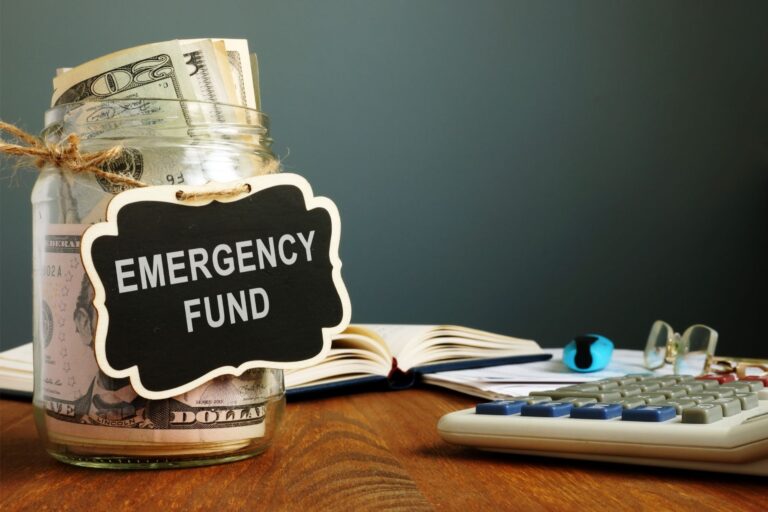
Life happens. Cars break down. You get sick. Companies downsize. Your laptop dies right before a big deadline. If you don’t have an emergency fund, these normal life events become financial disasters.
An emergency fund is exactly what it sounds like: money set aside specifically for unexpected expenses. Not for vacations. Not for new shoes. For actual emergencies. Building one should be a top priority, and skipping it is definitely one of those money mistakes to avoid in your 20s.
Without emergency savings, you’re forced to put unexpected expenses on credit cards or take out loans. Suddenly, a $1,000 car repair becomes $1,500 after interest. That’s how debt traps start.
How much should you save? Aim for three to six months’ worth of living expenses. Sounds like a lot? Start smaller. Even $500 or $1,000 can prevent most financial emergencies from becoming catastrophes.
Set up automatic transfers to a separate savings account every payday. Even if it’s just $25 or $50, it adds up faster than you think. The key is consistency, not perfection.
8. Not Setting Financial Goals
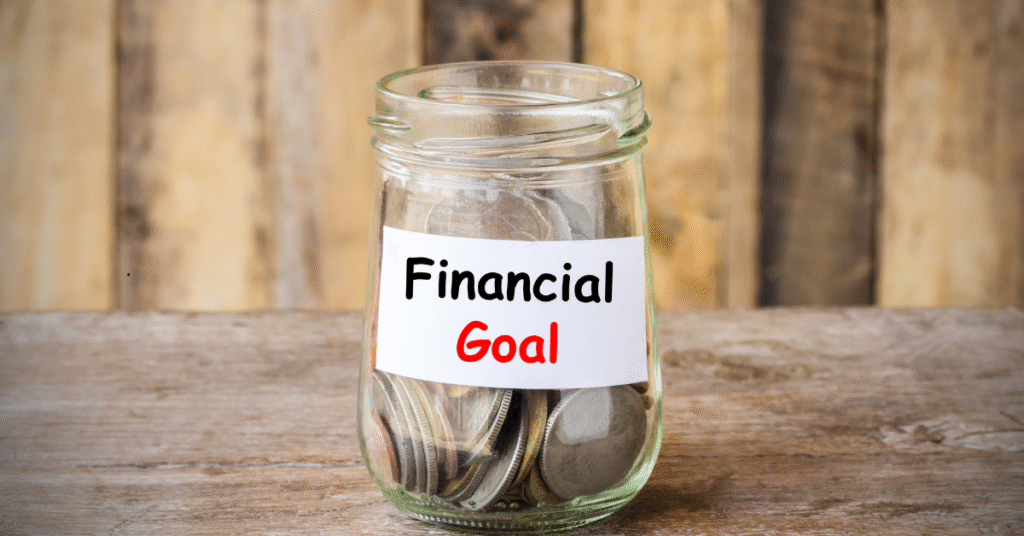
Ever wonder why some people seem to have their financial life together while others are constantly stressed about money? Goals. That’s the difference.
Without financial goals, you’re just drifting. You spend whatever’s in your account and hope there’s enough left over for the things you actually want. Spoiler alert: there never is.
Not setting clear financial goals is one of those sneaky money mistakes to avoid in your 20s that doesn’t seem like a big deal until you’re 35 and wondering where all your money went.
Goals give your money purpose. They turn “I should probably save something” into “I’m saving $300 a month for a down payment on a house.” See the difference? One is vague and forgettable. The other is specific and motivating.
Types of financial goals to consider:
- Short-term: Emergency fund, paying off a credit card, saving for a vacation
- Medium-term: Buying a car, saving for a wedding, building a down payment
- Long-term: Retirement savings, buying a home, achieving financial independence
Make your goals SMART: Specific, Measurable, Achievable, Relevant, and Time-bound. “Save money” is not a goal. “Save $5,000 for an emergency fund by December 31st” is a goal.
9. Not Earning Money In Your Free Time
Relying on a single income source is risky. What happens if you lose your job? What if your hours get cut? What if you want to save for something big but your regular paycheck barely covers expenses?
Not diversifying your income is one of those money mistakes to avoid in your 20s that limits your financial potential. You’ve got energy, time, and skills. Why not use them to create additional income streams?
I’m not saying you need to work 80 hours a week. But spending a few hours each week on a side hustle can dramatically improve your financial situation. Plus, it gives you a safety net if your main job disappears.
Side hustle ideas worth exploring:
- Freelancing (writing, graphic design, web development)
- Selling products online (Etsy, eBay, Amazon)
- Tutoring or teaching skills you already have
- Driving for rideshare or delivery services
- Social media management for small businesses
- Pet sitting or dog walking
The best side hustles are ones you actually enjoy. If you hate what you’re doing, you won’t stick with it. Find something that aligns with your interests and skills, and the money will follow.
10. Having A Bad Credit Score
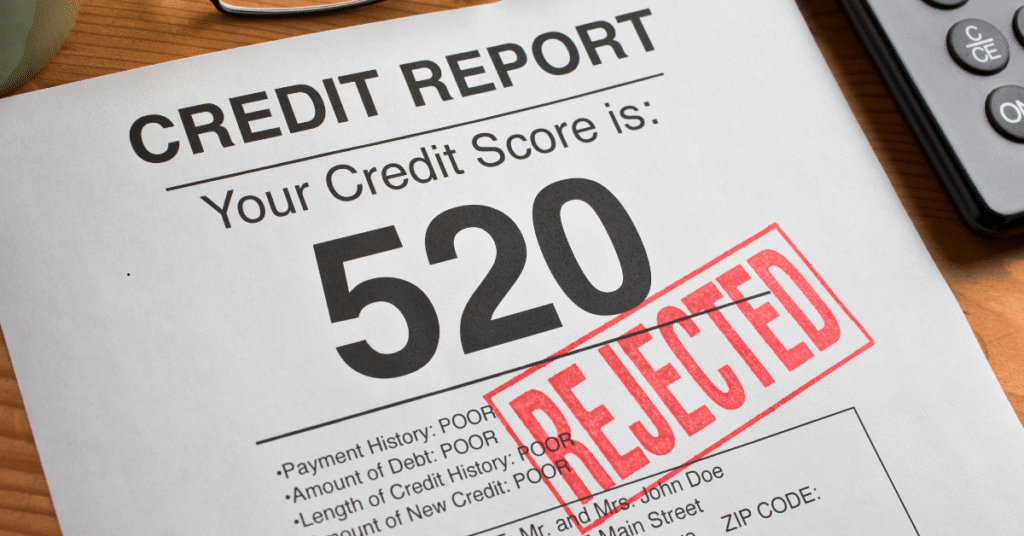
Your credit score is like your financial report card. It tells lenders, landlords, and sometimes even employers how responsible you are with money. A bad credit score can cost you thousands of dollars over your lifetime in higher interest rates and limited opportunities.
Many people in their 20s don’t even know what their credit score is, let alone how to improve it. This ignorance is one of the most expensive money mistakes to avoid in your 20s. Your credit score affects everything from getting approved for an apartment to the interest rate on your car loan.
What hurts your credit score:
- Late or missed payments
- High credit card balances
- Too many credit applications in a short time
- Defaulting on loans
- Collections accounts
What helps your credit score:
- Paying all bills on time, every time
- Keeping credit card balances low (under 30% of your limit)
- Having a mix of credit types (credit card, car loan, etc.)
- Keeping old credit accounts open
- Regularly checking your credit report for errors
You can check your credit score for free through apps like Credit Karma or directly from your credit card company. Make it a habit to monitor it and understand what’s affecting it.
11. Making Large And Unnecessary Purchases
There’s something intoxicating about having money in your account and the freedom to spend it however you want. No parents telling you no. No rules. Just you and your wallet making decisions.
This freedom often leads to impulse buying, especially on big-ticket items. A new TV you don’t really need. The latest smartphone when your current one works fine. Designer furniture for an apartment you’ll probably move out of in a year. These large, unnecessary purchases are classic money mistakes to avoid in your 20s.
The problem isn’t treating yourself occasionally. It’s making big purchases without thinking through the consequences. When you blow $2,000 on something you don’t need, that’s $2,000 that’s not going toward your emergency fund, retirement, or actual financial goals.
Before making any large purchase, ask yourself:
- Do I actually need this, or do I just want it?
- Can I afford this without using credit?
- Will I still be happy about this purchase in six months?
- What financial goal am I sacrificing to buy this?
- Is there a cheaper alternative that works just as well?
IMO, the best approach is the 30-day rule. If you want something expensive, wait 30 days. If you still want it after a month and can afford it without derailing your financial goals, go for it. Most of the time, the urge passes.
12. Failing To Save For Retirement

Retirement feels like a million years away when you’re in your 20s. Why would you save for something that won’t happen for 40+ years? Because compound interest is literally magical, and starting early is the closest thing to a financial cheat code.
Not saving for retirement in your 20s is hands-down one of the most costly money mistakes to avoid in your 20s. Every dollar you invest now has decades to grow. Wait until your 30s or 40s, and you’ll need to save way more to catch up.
Let me break this down with real numbers. If you invest $200 a month starting at age 25, assuming a 7% annual return, you’ll have about $525,000 by age 65. If you wait until 35 to start, you’ll only have about $244,000. That ten-year delay costs you over $280,000. Ouch.
How to start saving for retirement:
- Contribute to your employer’s 401(k), especially if they match contributions (that’s free money!)
- Open a Roth IRA and contribute regularly
- Start small if you need to, even $50 a month makes a difference
- Increase your contributions whenever you get a raise
- Automate your retirement savings so you don’t have to think about it
The beauty of starting in your 20s is that you don’t need to save huge amounts. Small, consistent contributions over time will build serious wealth thanks to compound interest. Your future self will thank you profusely.
Why Your 20s Are The Perfect Time To Get It Right
Here’s something most people don’t realize until it’s too late: your 20s are your financial foundation years. The habits you build now will stick with you for decades. The mistakes you avoid now will save you years of stress and struggle.
You’ve got something incredibly valuable that you can never get back: time. Time for your investments to grow. Time to recover from setbacks. Time to build multiple income streams. Time to learn and adjust your approach.
Plus, your expenses are probably lower now than they’ll ever be. No mortgage. Maybe no kids. Fewer responsibilities. This is your window to save aggressively, invest consistently, and build wealth before life gets more complicated and expensive.
Every money mistake you avoid in your 20s is a gift to your future self. Every smart financial decision you make now compounds over time, creating more freedom, less stress, and more options down the road.
Practical Steps To Avoid These Money Mistakes
Knowing what not to do is great, but let’s talk about what you should actually DO to avoid these money mistakes in your 20s.
Start with these foundational habits:
- Track your spending: Use an app like Mint or YNAB to see exactly where your money goes each month. You can’t fix what you don’t measure.
- Automate your savings: Set up automatic transfers to savings and investment accounts on payday. Pay yourself first, always.
- Live below your means: Aim to spend 10-20% less than you earn. This creates breathing room for savings and unexpected expenses.
- Educate yourself: Read personal finance books, follow money experts, listen to podcasts. Knowledge is power when it comes to money.
- Review your finances monthly: Spend 30 minutes each month reviewing your budget, checking your credit score, and assessing your progress toward goals.
- Build multiple income streams: Don’t rely solely on your day job. Develop side hustles or passive income sources.
- Surround yourself with financially smart people: Your friend group influences your spending habits. Choose wisely.
None of this is complicated, but it does require intention and consistency. The people who succeed financially in their 20s aren’t necessarily the highest earners. They’re the ones who make smart decisions consistently over time.
The Real Cost Of Money Mistakes
Let’s get real for a second. Every money mistake has a cost, and I’m not just talking about dollars and cents. There’s an emotional and psychological cost too.
Financial stress affects your mental health, your relationships, and your physical well-being. It keeps you up at night. It causes fights with your partner. It limits your career options because you can’t afford to take risks or pursue opportunities.
When you avoid money mistakes in your 20s, you’re not just protecting your bank account. You’re protecting your peace of mind, your relationships, and your future opportunities. You’re giving yourself the freedom to make choices based on what you want, not what you can afford.
Think about it this way: would you rather spend your 30s and 40s building wealth and enjoying life, or would you rather spend them digging out of debt and playing catch-up? The choice you make in your 20s determines which path you’ll take.
Final Thoughts
Look, nobody expects you to be perfect with money in your 20s. You’re going to make some mistakes. That’s part of learning and growing. But if you can avoid the big, costly money mistakes we’ve talked about, you’ll be miles ahead of most people your age.
The money mistakes to avoid in your 20s aren’t complicated or mysterious. They’re common, predictable traps that catch people who aren’t paying attention. Now that you know what they are, you can sidestep them and build the financial future you actually want.
Start small. Pick one or two areas from this list that resonate with you and focus on improving them. Maybe it’s finally creating a budget. Maybe it’s starting an emergency fund with just $25 a week. Maybe it’s setting up that retirement account you’ve been putting off.
Whatever you choose, take action today. Your future self is counting on you to make smart decisions now. And trust me, when you’re 35 or 45 and financially secure while your peers are stressed about money, you’ll be so glad you took this seriously in your 20s.
You’ve got this. Now go make some smart money moves and avoid those costly mistakes. Your financial freedom is waiting.


